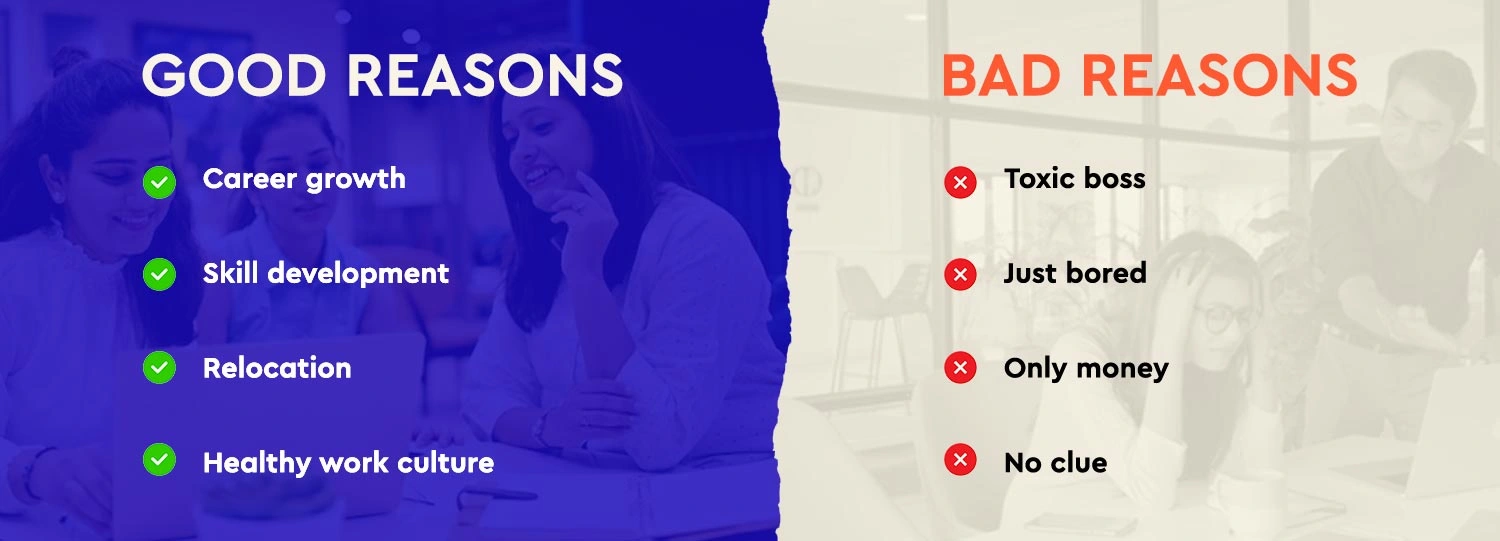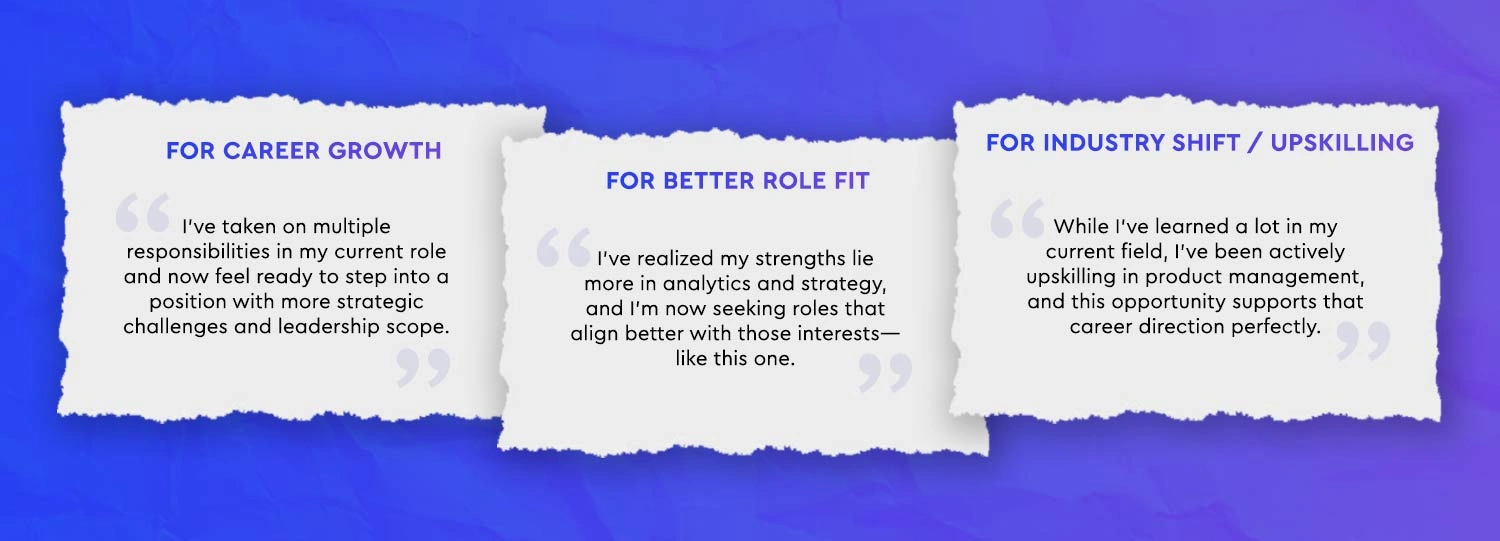Have you ever felt unsure about how to answer, "Why are you looking for a job change?" It's one of the most commonly asked interview questions—and one of the most important.
A lot of people give answers that are either too generic or sound negative. But your response tells the interviewer about your mindset, professionalism, and career direction. So how do you answer this question in a way that feels honest, confident, and compelling?
This guide breaks down everything—from real examples to common mistakes—so you're not just prepared, you're memorable.
What Does "Why Are You Looking for a Job Change?" Really Mean?
When an interviewer asks this question, they're not just curious—they're assessing:
- Are you someone who takes charge of your career?
- Are you leaving your job for the right reasons?
- Do your expectations align with what they can offer?
- Will you stick around if they hire you?
That's why it's important to frame your answer in a positive, forward-thinking way.
Top Reasons for Job Change (Use These As Your Base)
Here are solid, professional reasons you can use and tailor to your situation:
- Career Growth: "I've reached a point where I'm looking to take on more responsibility and work on more complex projects."
- Better Role Alignment: "While I've learned a lot in my current position, I've realized I want to focus more on [your interest area], and this role matches that direction."
- Skill Development: "I'm looking for opportunities that allow me to build on my [specific skill], and this role offers that scope."
- Relocation: "I'm relocating to [new city], and I'm looking for a role that aligns with my experience and goals in the area."
- Company Culture Fit: "I've realized I do my best work in a more collaborative and fast-moving environment like yours."
- Work-Life Balance (Professionally Framed): "I've become more mindful of how I manage my energy and focus, and I'm looking for a healthier balance while continuing to perform well."
- New Industry or Career Path: "I'm transitioning into [new field] and I've been upskilling myself through courses and side projects. This role is an ideal fit for that shift."

What Not to Say (Avoid These Common Mistakes)
Recruiters hear a lot of answers, and they can instantly sense red flags. Avoid saying:
- "I just need a change"
- "I don't like my boss"
- "The work is boring"
- "I want more money" (without any context)
These answers make you sound reactive instead of intentional. Always focus on what you're working toward, not just what you're escaping.
How to Structure Your Answer (The 3-Part Formula)
Use this proven format:
- Appreciate your current/last job: Start with something positive. Mention what you've learned or appreciated about your role.
- Explain your reason for change: Use one of the valid reasons mentioned above. Keep it short, specific, and professional.
- Connect it to the new role: Explain why this new opportunity is a great fit for your career goals.
Example:
"I've enjoyed working on product campaigns in my current role and have developed strong coordination and analytics skills. Now, I'm looking to step into a position where I can lead strategy and contribute to higher-level planning—which aligns well with this opportunity."
Real Answer Samples (Tailored for Common Scenarios)
- Looking for Career Growth: "I've taken on multiple responsibilities in my current job and now feel ready to move into a role with more strategic challenges and leadership responsibilities."
- Changing Roles or Departments: "I've discovered that my strengths lie in data and analytics. While my current role focuses more on execution, I'm now pursuing opportunities that match my analytical interests."
- Better Work-Life Balance: "Over time, I've realized that a balanced and flexible environment helps me be more productive. I'm looking for a company that values both results and employee well-being."
- Switching Industry: "After 2 years in finance, I've built a strong foundation in client relations. However, I'm passionate about the tech industry and have completed certifications to support this transition. This role is a great match."

Mistakes to Avoid (Based on Real Recruiter Feedback)
- Talking negatively about your current employer
- Focusing only on salary
- Sounding unsure or unclear about your goals
- Giving a memorized or robotic answer
Instead, focus on growth, alignment, and professional tone.
Tips to Personalize Your Answer
- Research the company so you can mention what excites you about them.
- Practice your answer aloud—it should sound natural.
- Use keywords like "career growth," "role alignment," "leadership opportunities," or "skill development."
- Keep it to 30–60 seconds in interviews.
Frequently Asked Questions (FAQs)
1. What is the best answer for "Why are you looking for a job change"?
One that's positive, future-focused, and specific. For example, "I'm seeking new challenges in a more strategic role that builds on my skills."
2. Can I talk about salary as a reason?
You can, but always tie it to growth or added responsibilities—don't say it's your only reason.
3. How do I answer if I was laid off?
Be honest and professional. Mention the layoff, then focus on what you learned and what you're seeking next.
4. What if I'm switching industries?
Mention the skills that carry over and the steps you've taken to prepare—like courses or projects.
5. Is it okay to say I want a better work-life balance?
Yes, but frame it positively. "I'm looking for a workplace that encourages healthy productivity."
6. Do freshers get asked this question?
Sometimes, yes. Freshers can explain their interest in a new path or preference based on internships or academic projects.
7. What's the worst way to answer this question?
Being negative, vague, or blaming others. Avoid saying "I hated my job" or "I just didn't feel like working there."

































